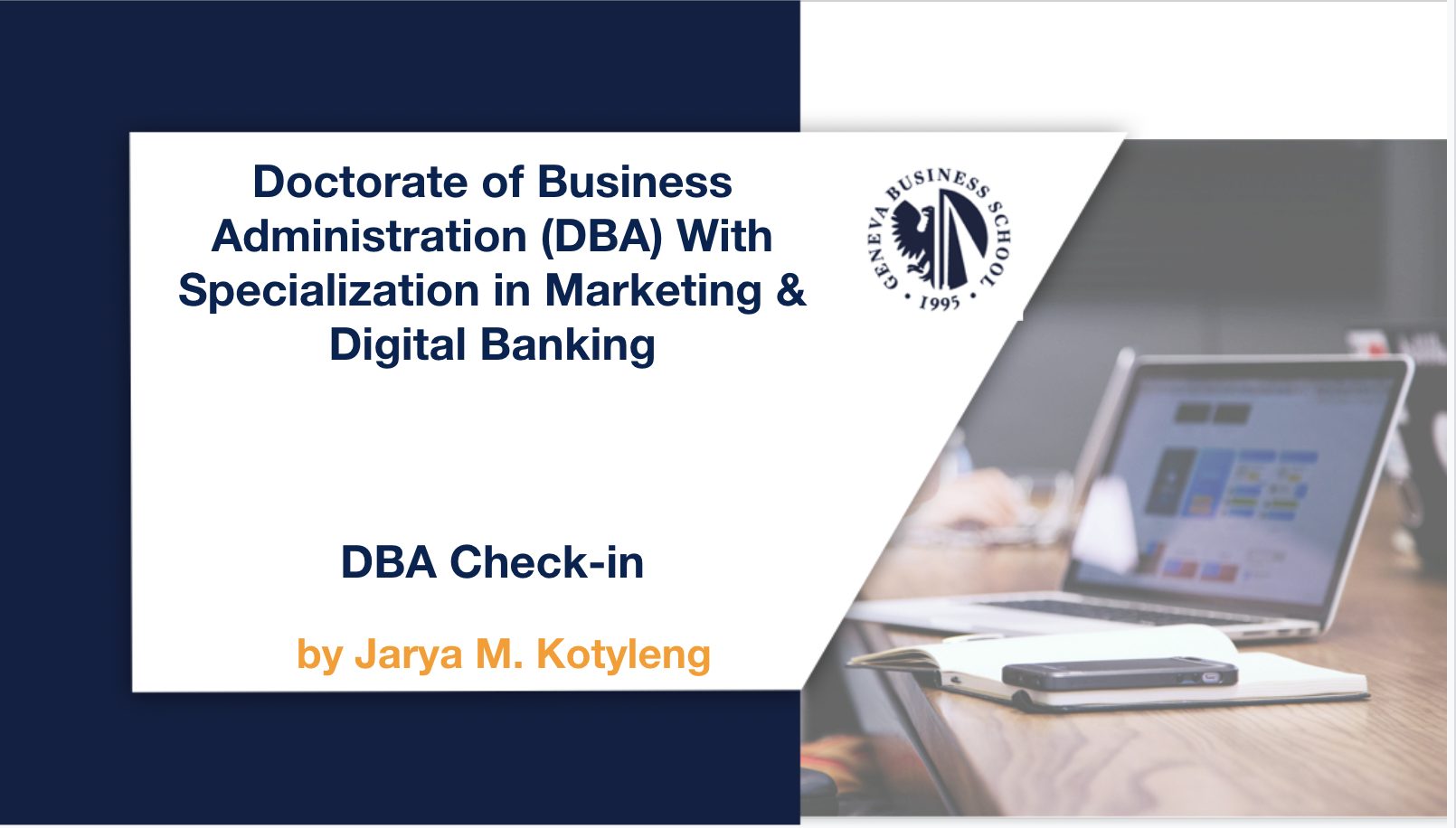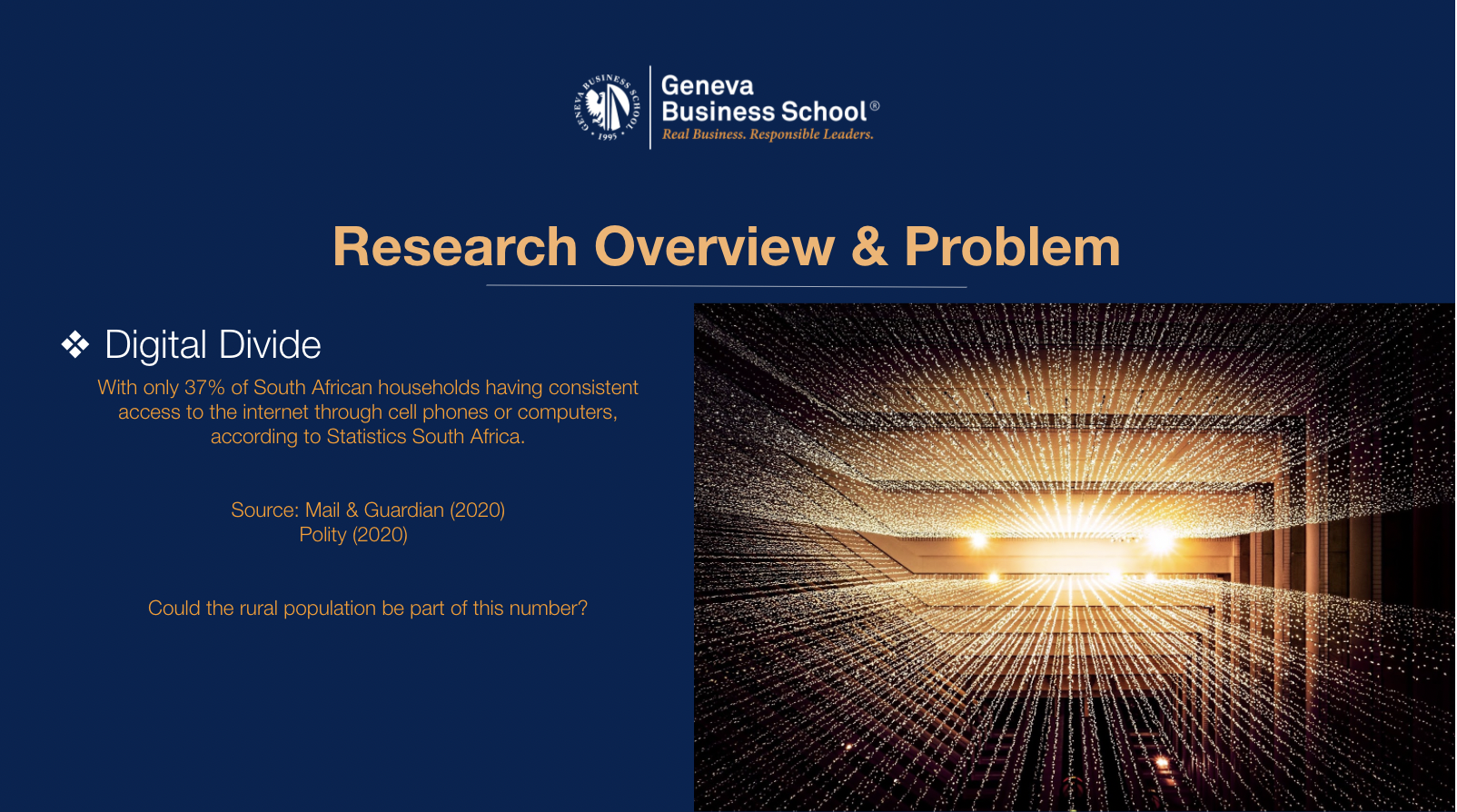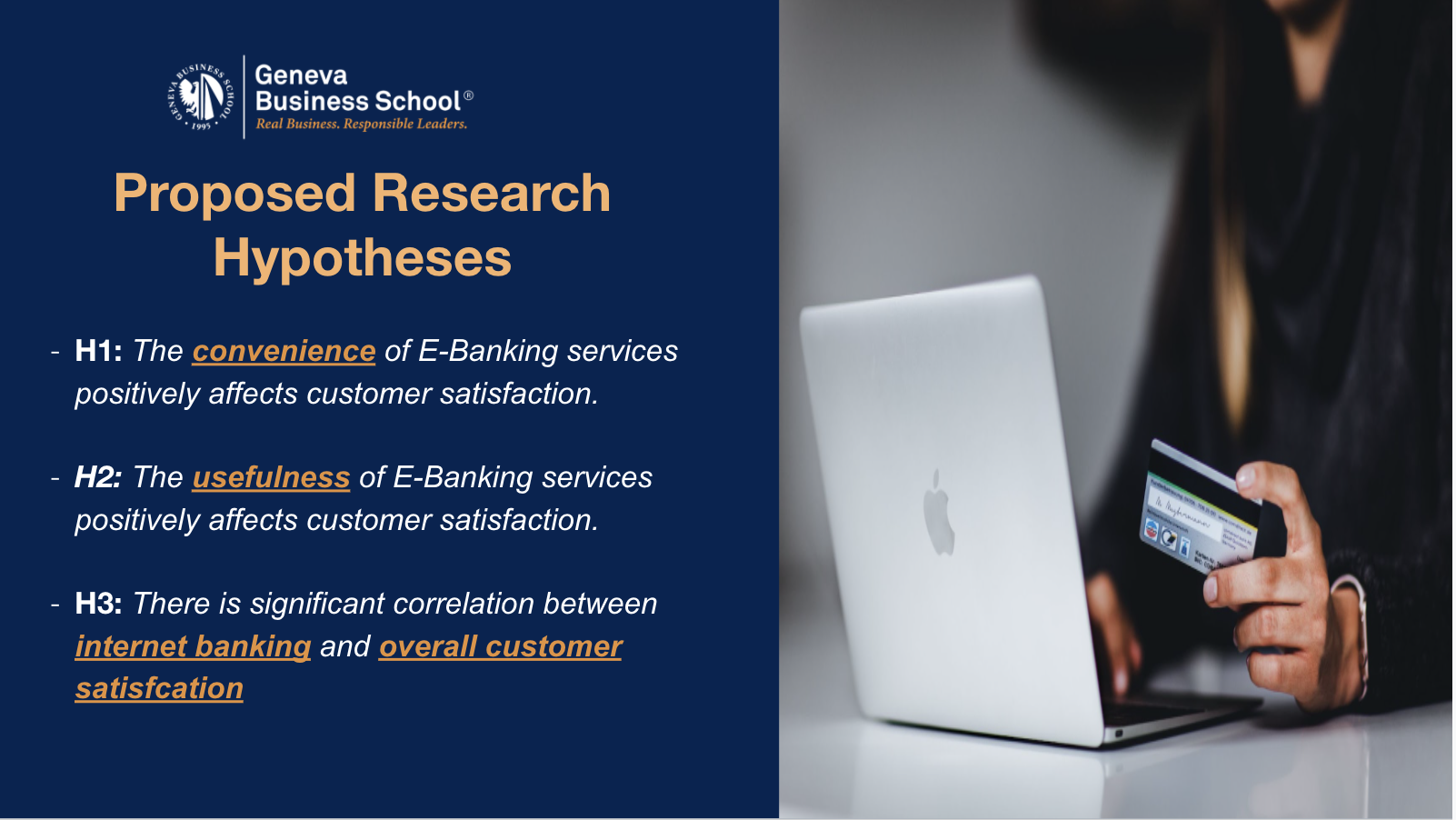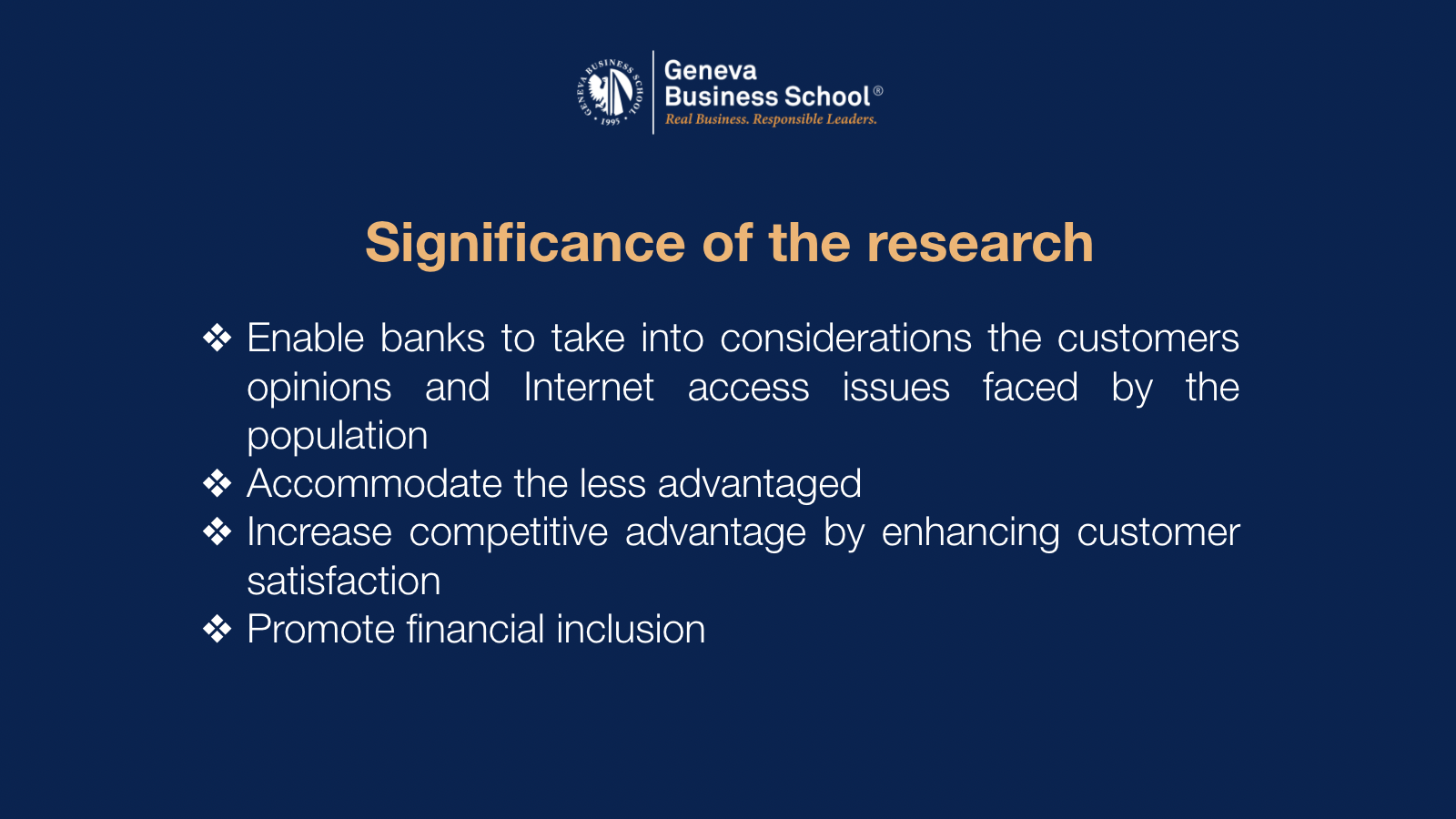DBA Thesis check ins – December 2021
Read two DBA candidates abstracts summarizing their research

In December 2021, two students presented at their annual check-in. First up, Jarya Kotyleng presented her thesis’ progress on her research into the banking sector in South Africa. Jarya is in the final year of her DBA program, she is expected to complete and submit her thesis in January 2022.
Jarya’s thesis topic:
The Impact of Internet Banking on Customer Satisfaction in the South African Banking Sector: An emphasis on Self-Service Technology in Johannesburg.
ABSTRACT


Furthermore, the research aims to provide answers to the relationship between customer satisfaction and SST service quality variables amongst Johannesburg-based South African bank customers. Through interviews with online banking users and experienced bank employees in Johannesburg, primary data is collected and analyzed against the identified variables to provide a pertinent answer to the research question.
The current results show that online banking has a good overall effect on user satisfaction. Although there are some specific factors that banks and local government need to address to improve satisfaction and allow all users to truly enjoy the benefits of online banking.
Second in this round was Elsy Sarkis-Garlough, a final year DBA candidate who is examining the contemporary paradigm of productivity, efficiency and business growth in view of the application of AI. Her topic:
What is the impact of adopting Artificial Intelligence technologies on leadership?
Born in Beirut Lebanon, the entirety of Elsy Sarkis-Garlough’s international employment and schooling has been in the fields of business and post-secondary education. Although married to an American citizen, Elsy’s previous work experience had been primarily in the Middle East, including Kuwait, Saudi Arabia and Lebanon. She has worked in a variety of international business-related positions including administration, sales and marketing, distribution and business improvement. Her prior work in education includes both as an industry trainer and as a collegiate level business department coordinator and faculty member. Elsy’s formal education includes a BS in Business and Economics and a MS in Business Management. Professor Sarkis-Garlough continues her studies in business, and is pursuing a doctoral degree in leadership while focusing on the impact of Artificial Intelligence on management and leadership. She currently works as an adjunct professor in the departments of Marketing and Management in the Cameron School of Business at the University of North Carolina Wilmington.
ABSTRACT
Decades of research and development have resulted in tremendous advancements in digital technologies and particularly with the emergence of Artificial Intelligence (AI). In view of these technological advancements and changes that are happening at a very accelerated pace, some business industries have found it mandatory to embrace AI in order to save and grow their market share, while keeping up with their industry’s rivals. Using simulated artificial neurons and algorithms, AI systems are being incrementally adopted by many business industries, but at the same time causing massive structural unemployment while becoming a mandatory need for every business entity.
As an unintended consequence, the adoption of AI in its many forms has resulted in the need for management to become more agile in their leadership styles. The leaders in charge, whose main aim is to achieve higher levels of productivity, growth, profit, success and recognition for their goods and services at a national and international level, have found merging AI technologies such as robotics and machine learning with their human workforce means new challenges, including both financial and staffing related.
This dissertation paper aims therefore to assess the challenges of leadership in the age of AI comprising the knowledge, skills set, and attitudes required to cope with this rapid and pervasive change. Indeed, the goal is to examine the contemporary paradigm of productivity, efficiency, and business growth in view of the application of AI. The researcher relied on both qualitative and quantitative research techniques to collect primary and secondary data. The qualitative ones included experts interviews, secondary data analysis, and in-depth interviews with experienced leaders from various business industries. For the quantitative research, a cross-sectional survey was conducted to collect data from a sample of respondents attempting to uncover their challenges, perceptions and attitudes towards AI.









